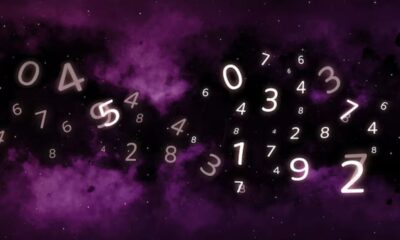Introduction
Numbers are everywhere. They measure our time, track our transactions, define our identities, and even unlock the secrets of the universe. Among the countless sequences of digits, some stand out — not because of inherent properties but because we stop to ask: What do they mean? One such sequence is 9039263946. At first glance, it appears random, like a phone number, a bank account, or a forgotten code. Yet with deeper reflection, we discover that numbers like this can become doorways into history, mathematics, culture, and imagination.
This article explores 9039263946 as a case study in how humans give meaning to numbers. We will examine it from mathematical, symbolic, cultural, and creative perspectives, revealing how a simple sequence can spark wide-ranging insights.
Numbers as Identity
In modern life, numbers often replace names. We are identified by phone numbers, social security codes, passports, bank accounts, and student IDs. A sequence like 9039263946 could easily be one such identifier, linking a person to a network, a memory, or a system.
This raises a profound question: Are we becoming numbers? Sociologists argue that digitization reduces individuality, turning people into data points. Yet there is also empowerment in numbers: they make systems efficient, protect privacy, and allow for scalability in society.
Thus, 9039263946 symbolizes both the loss of individuality and the creation of universal belonging. It is simultaneously impersonal and deeply personal.
Mathematical Curiosities
From a mathematical perspective, every number has unique properties. Let us consider 9039263946.
-
Evenness: Since it ends with a 6, it is divisible by 2.
-
Size: At nearly 10 billion, it belongs to the family of large integers that computers handle effortlessly but humans rarely memorize.
-
Prime factors: Large numbers like this can be broken into smaller components. Factoring it may reveal hidden patterns useful in cryptography.
-
Digit patterns: Repetition of “9,” “3,” and “6” suggests rhythm, almost like the structure of a poem embedded in mathematics.
Mathematicians often find beauty in randomness. Numbers without obvious meaning are playgrounds for discovery. Could 9039263946 hide a secret property waiting to be revealed?
Numerological Symbolism
Beyond pure mathematics, many cultures attach symbolic meanings to numbers. In numerology, digits are often reduced by adding them together.
-
9 + 0 + 3 + 9 + 2 + 6 + 3 + 9 + 4 + 6 = 51
-
5 + 1 = 6
Thus, 9039263946 reduces to the number 6, often associated with harmony, balance, responsibility, and love. In this interpretation, the sequence represents an energy of caregiving and stability.
In Chinese culture, 9 is linked to longevity, while 6 symbolizes smooth progress. The recurrence of 9s and 6s in this sequence could therefore suggest resilience and good fortune.
Through these lenses, 9039263946 ceases to be random and becomes a symbolic talisman.
Numbers in Technology
In the digital world, numbers like 9039263946 are functional. They can represent:
-
Phone numbers: Connecting people across continents.
-
IP addresses: Guiding internet traffic.
-
Database keys: Linking information in systems.
-
Encryption codes: Securing sensitive data.
In such contexts, the meaning of the number is not in its digits themselves but in what they enable. A single sequence can open a bank account, transmit a message, or unlock access to knowledge.
Thus, technology shows us that numbers are gateways—they stand between us and the systems we rely on.
The Cultural Power of Numbers
Across history, numbers have carried cultural weight. Ancient civilizations like the Babylonians and Mayans encoded their cosmologies in numerical systems. Modern societies attach significance to birthdays, anniversaries, and “lucky numbers.”
Could 9039263946 be remembered as a cultural number? Perhaps in the future, this sequence might symbolize a scientific breakthrough, a viral trend, or even a fictional universe. Just as “007” became synonymous with James Bond, any number can become iconic if embedded in a narrative.
Storytelling with Numbers
Writers and filmmakers often use numbers to create mystery. Think of George Orwell’s 1984, Ray Bradbury’s Fahrenheit 451, or the cryptic numbers in the TV series Lost.
If 9039263946 appeared in a story, it could be:
-
A secret code unlocking a hidden vault.
-
A year in the far future, symbolizing human evolution.
-
A cosmic coordinate, pointing to a star system.
-
A personal memory, the phone number of a long-lost friend.
Numbers invite curiosity because they seem precise yet often hide meanings we cannot see. A good storyteller turns numbers into narrative anchors.
The Philosophy of Numbers
Philosophers from Pythagoras to modern thinkers have asked: Are numbers discovered or invented?
If numbers are discovered, then 9039263946 has always existed, waiting to be noticed. If they are invented, then this number is a human creation, meaningful only because we decided it should be.
This duality reminds us that numbers are both real and symbolic. They are tools for measuring the universe but also mirrors of human imagination.
The Personal Dimension
What does 9039263946 mean to you, the reader? Perhaps it reminds you of a password you once used, a date in disguise, or an old phone number. Numbers become personal when attached to memory.
This suggests that meaning is not fixed but relational. A number acquires significance only when woven into the fabric of someone’s life.
Conclusion
On the surface, 9039263946 is just a string of digits. But as we have seen, numbers are never just numbers. They are identities, mathematical objects, cultural symbols, technological keys, and narrative anchors. They invite interpretation and imagination.
By exploring 9039263946 through different lenses—mathematical, symbolic, cultural, technological, and personal—we discover that numbers are among the most versatile tools of meaning-making.


